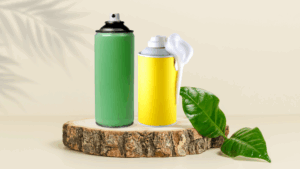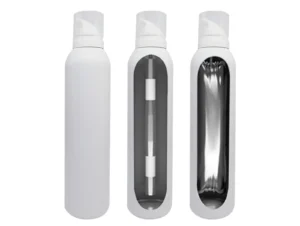What Is Sustainability in the Beauty Industry?
In the cosmetics industry, sustainability practices involve creating products made from organically sourced, high-quality natural ingredients. Companies pursuing sustainable practices in the beauty industry must thus ensure that all their production processes limit the inclusion of possible environmental pollutants, such as petrochemicals and microbeads.
Why Are Sustainable Practices Important?
Manufacturing practices of the past largely involved processes that damaged the environment. A study conducted by the Thomson Reuters Foundation in 2018 revealed that some global cosmetic supply chains are linked to microplastic pollution, carbon production, and water wastage among other problems.
More consumers have begun advocating for beauty brands to focus on sustainability practices, i.e. those that allowed the public to feel confident about both the effectivity and sustainability of the products they’re buying.
What Are the Biggest Sustainability Problems in the Beauty Industry?

The two biggest sustainability problems in the beauty industry are the high environmental cost and the underrepresentation of stakeholders like factory workers and farmers. More so than at any other point in history, the beauty business has been expanding at an exceedingly rapid rate. However, the high demand for innovative products has also driven an influx of questionable sourcing and manufacturing procedures.
What Can Beauty Brands Do to Be More Sustainable?
-
Source from trusted suppliers
. The best way to become more sustainable is to source all your ingredients from a trusted supplier. This is especially true for products that are highly sensitive to the manufacturing process, like coconut oil. To ensure that your beauty products are of the highest quality, it’s recommended that you partner with a certified coconut oil supplier like the Philippines’ Natura Aeropack Corporation.
-
Consider sustainable packaging
. Plastic waste may damage the environment, particularly bodies of water where animals may either ingest them or become entangled. This waste can be found in lotion bottles, shampoo and conditioner receptacles, and even tubes for mascara, liquid eyeliner, and lip gloss. Consider packaging your products in biodegradable solutions or plastic-free packaging to limit your environmental impact.
-
Partner with a recycling program
. There are now many socially conscious initiatives that you can partner with, particularly for recyclable packaging. Depending on your specific product and manufacturing processes, you can find a program that works best for you. You can even encourage your customers to participate by giving discounts or perks to anyone who returns their product packaging.
-
Encourage multiple use
. If recycling is not an option, empower your customers to reuse their product packaging instead. Make your packaging appealing and useful to encourage your customers to reuse them for other occasions.
Beauty for the Body and the World
Natura Aeropack is committed to helping you achieve a vision of a greener future. As trusted ingredients supplier work with various beauty brands to create high-quality products made from coconut. Contact Natura Aeropack today and let’s discuss how we can help you promote an eco-friendly approach to beauty production.





